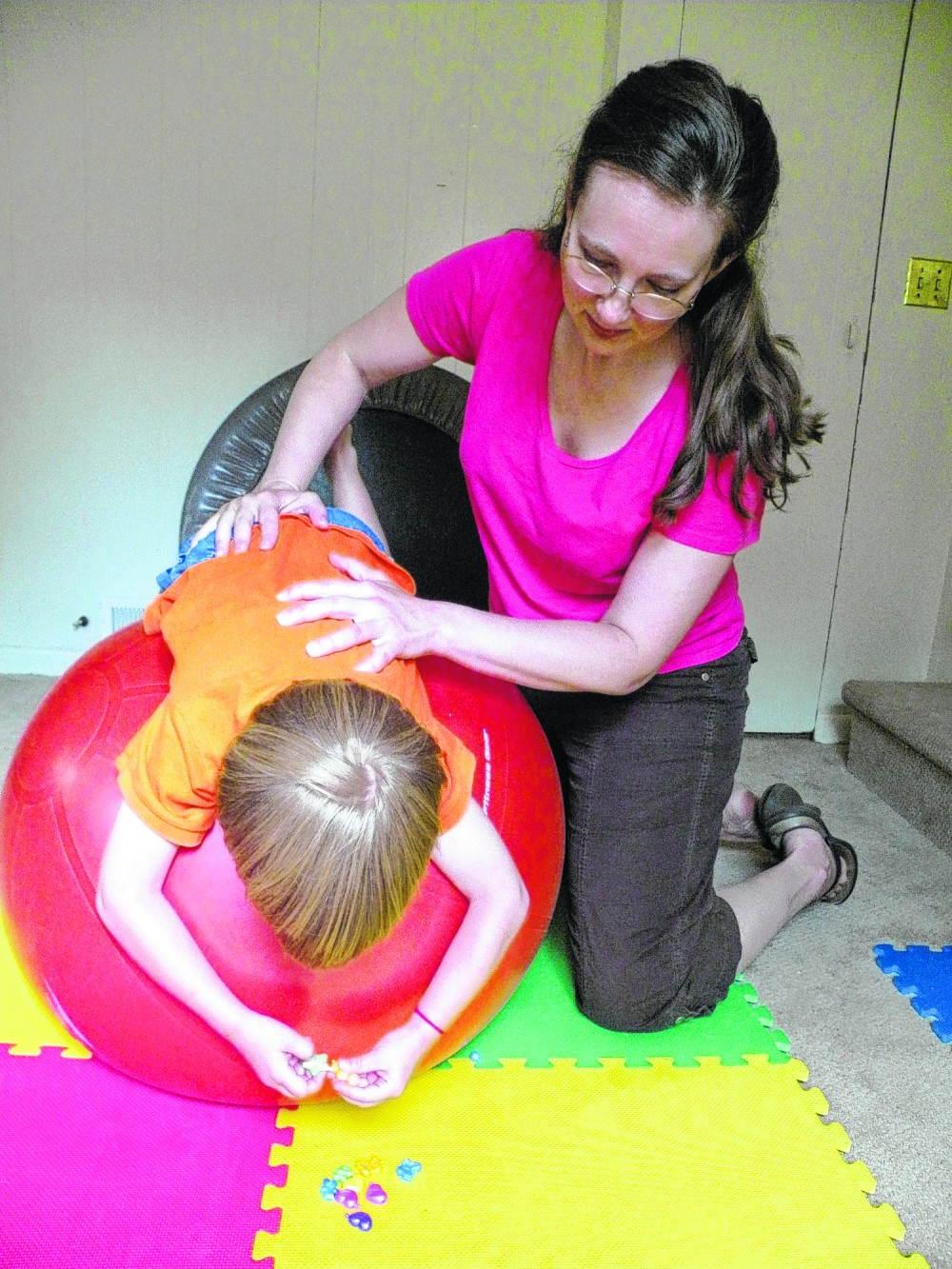An occupational therapist since 1998, Jennifer Burgess spent much of her nearly 15-year career working with autistic adults at the TEAM Center. After funding in Tennessee was cut last summer for that population, she has been providing therapy at area hospitals, Life Care centers and through Hamilton County Schools.
"I've never had just one job; I've always had extra work on the side," said Burgess.
She said she started her home-based occupational therapy business, Full Potential Therapy, two years ago after several members of her church who had children with learning disabilities asked her if she could do something to help.
"I started out just taking people that I know," said Burgess, who has since expanded her clientele by word of mouth.
After tornadoes swept through the area April 27, 2011, and made her home uninhabitable, she was forced to work from an apartment, which made her business difficult. Her family recently found a new home on Signal Mountain, where Burgess has a room dedicated specifically to therapy.
Most of her clients are children age 3 and older, though she will accept adult clients with problems in her areas of focus. These include sensory and coordination problems, attention deficit disorder, people with Asperger's syndrome and others on the autism spectrum, and those with unexplained learning difficulties.
Burgess is a certified local provider for several specialized areas of treatment, including NeuroNet, a therapy protocol that utilizes rhythm and synchronized movements to reorganize the brain.
Burgess works with children on a computer program for which she has received advanced training developed by speech-language pathologist and audiologist Nancy Rowe. Movements are used to correct errors in brain processing of timing, sequencing and coordination, which allows certain cognitive processes to transition from intentional to automatic and free up more of the brain for higher learning.
Therapeutic listening is another specialized therapy offered by Full Potential.
"Different rhythms in music can increase the ability to speak and improve the ability to focus and pay attention," said Burgess, also noting its positive effect on coordination, alert/wake cycles and elimination cycles. "It can also improve timing for conversation and breath control when speaking."
Types of music used in therapeutic listening include everything from classical, easy listening and surf tunes to children's songs and pop hits one would recognize from the radio. The music is played through a filter that deviates between low- and high-pitched sounds, exercising the muscles in the ear that affect how one processes sound as well as movement.
Burgess said results from the therapy are sometimes gradual and occasionally dramatic, depending on how often the parents work with the child outside of therapy. One client who previously did not speak began to do so, and another gained a year and a half in her cognitive abilities, according to Burgess.
"It requires 30 minutes of listening twice a day during an activity that is non-electronic," said Burgess, meaning the child cannot be watching TV as they listen. "If parents don't follow the protocol, you won't see the changes."
Having experienced coordination problems herself as a child, Burgess knows firsthand the effect therapy can have on a child's life. After receiving occupational therapy at Siskin Hospital, she knew she eventually wanted to help others in the same way, she said.
"You can ask some of the parents [of my clients] and they will tell you this is what I am meant to do," said Burgess, who has also treated her own 5-year-old son. "I love seeing their life change for the better, seeing their self-confidence grow in their ability to do things."
She recommends parents take their child to an occupational therapist if something is hindering their ability to do what they need to do, such as school work or social interaction.
Burgess said parents accompany their children to therapy appointments, which typically last an hour. While she accepts insurance, some companies require prior approval for evaluation and set different limits for the number of visits per year.
